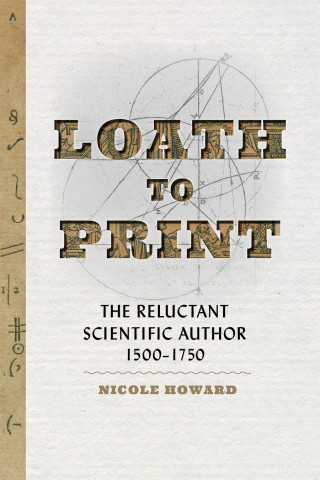
Reviews
Loath to Print is an engrossing story of how learned authors, often skeptical of sharing knowledge beyond elite coteries, tried to make printing work for them. In this nuanced tale, people manipulate technologies and technological systems, both materially and socially, and those technologies—and the bigger systems of which they are a part, composed of people, customs, laws, and practices—bend only partially to their manipulation. This book has lessons for anyone seeking to understand (or surveying with dismay) today's landscape of scientific publishing.
Engagingly written and deftly argued, Nicole Howard's Loath to Print takes the reader through printing and reading practices in the history of the sciences from Regiomontanus to Newton. Texts and images, authors and printers, editors and readers jockey for attention while shedding light on the early modern world of learning.
Lucidly written and employing the latest scholarship, Loath to Print demonstrates that print was a double-edged sword for practitioners of the new science: it could disseminate their ideas but also provoke conflict and misunderstanding. Howard masterfully immerses the reader in the early modern Republic of Letters.
Nicole Howard's well-crafted book offers a perceptive analysis of early modern scientific authors' ambivalence about putting their work into print. Her fascinating study illuminates underexplored facets of this time period's scientific networks, from the emergence of editors to the diverse strategies authors used to attract their desired audience.
Book Details
Acknowledgments
Introduction. "A Vast Ocean of Books"
1. Authorial Attitudes toward Print
2. "To the Unprejudiced Reader": The Rhetoric of Prefaces in Early Modern Science
3. The Controlled Distribution
Acknowledgments
Introduction. "A Vast Ocean of Books"
1. Authorial Attitudes toward Print
2. "To the Unprejudiced Reader": The Rhetoric of Prefaces in Early Modern Science
3. The Controlled Distribution of Scientific Works
4. "A True and Ingenious Discovery": New Print Technologies and the Sciences
5. Silent Midwives: The Role of Editors in Early Modern Science
Conclusion. Reluctance Overcome
Notes
Index






